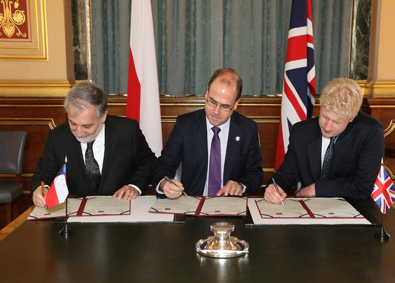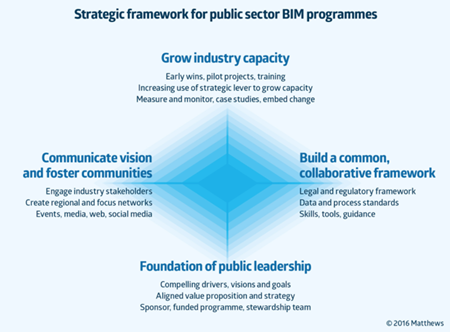
Submitted by Angela Walters on Wed, 25/04/2018 - 11:53
Sharing a digital language for construction enables partner countries to secure domestic benefits and increase international growth says Adam Matthews, who leads the international Digital Built Britain team. In this blog Adam reflects on Chile’s achievements in copying and adapting the UK’s BIM programme.
"Ultimately what the UK has shown is possible, and what other countries are looking to replicate and adapt to their own requirements, is the ability to affect a digital transformation through public policy and public procurement."
Driving the international stream for the Centre for Digital Built Britain (CDBB) requires engagement with governments and public sector stakeholders around the world sharing the UK’s open and collaborative approach to BIM. We support the capacity building of public sector officials by delivering the UK’s open framework underpinning the strategic implementation of BIM across partner countries in Europe, Latin America, Asia and Africa.
Chile leads the way in Latin America and the speed of its digital journey to date is exemplary. Chile has taken lessons learned from the UK programme and effectively adapted the strategy and standards based framework to meet the needs of its own construction sector and built environment culture. What is remarkable is that they have achieved in just over a year what it took the UK three years to complete.
Working with Chile has been a positive exercise for both Chile and the UK. The CDBB International team were able to learn and improve how we work with other countries and import some of those factors into our own domestic programme – we have learned from each another.
Establishing the strategic framework that facilitates any programme of change is crucial. The Memorandum of Understanding (MoU) is the starting point in working bilaterally and this agreement between governments lays out the objectives and areas of interest of the collaboration. So far, five MoUs are agreed across Latin America, Europe and Asia, and we expect a further five to be progressed in 2018.

Signing of the UK-Chile BIM MoU (May, 2016)
The UK brings expertise, an open strategy model and standards around the implementation of BIM that supports public officials in participating countries to develop the thinking behind the introduction of the BIM process.
Ultimately what the UK has shown is possible, and what other countries are looking to replicate and adapt to their own requirements, is the ability to affect a digital transformation through public policy and public procurement. This was key for our collaboration with Chile. By taking a leadership position as a government authority it is possible to help lead the market towards a digital transition that derives a range of sector-level benefits including: driving value for public money by greater sector competitiveness, productivity and profitability; improving delivery of services; and upskilling the workforce.
Identifying strategic objectives early is important. Chile is looking to solve similar problems to the UK through working digitally; it wants to increase value for public money spent, deliver better social care and improve the quality of the built environment in a way that encourages greater prosperity for the country.
The CDBB engagement with Chile was based on the UK’s introduction of BIM which is closely aligned with the EU BIM Task Group’s recommendation described in its Handbook.
This shared learning approach included a number of bilateral visits between London and Santiago, including workshops to support collaboration and knowledge exchange. CDBB and UK experts offer technical assistance and support in the following four key areas:
- Public leadership, policy and strategy
- Building communities and using communication
- Developing a framework of legal, technical and process standards
- Increasing capacity through training, projects and progressive public procurement developments

